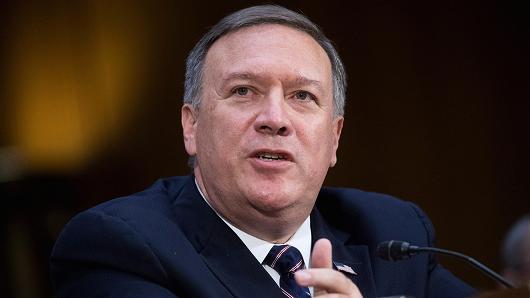By P.K.Balachandran/Daily Express
Colombo, October 11: The Sri Lankan government will not bend to the United States on the issue of the Millennium Challenges Corporation Compact (MCC) or the Status of Forces Agreement (SOFA) when the US Secretary of State Mike Pompeo visits for talks with Lankan leaders, a top government source said.
“The Gunaruwan committee appointed by President Gotabaya Rajapaksa had gone into the MCC compact and has suggested that it be renegotiated to make it compatible with the Sri Lankan constitution and law. It remains to be seen if the Americans will agree,” the top source said. “As for SOFA , it cannot be on the agenda now because we would like to take up issues one by one,” he added.
SOFA, like the MCC, has also come under heavy flak from Sri Lankan nationalists and the media on the grounds that it violates Sri Lankan law and constitution.
Pompeo will be here on a scheduled visit at the end of October as part of a tour of various countries.
The ranking US official is currently busy sewing up “Quad” an alliance of US, Australia, Japan and India. He had visited Japan, had a powwow with its newly elected Prime Minister Yoshihide Suga and emerged from it confident that Abe’s successor is in line with the anti-China policy of Abe and the US. Pompeo would like to firm up his ties with India and hope to rope Sri Lanka into the alliance giving its strategic position in the Indian Ocean where China’s maritime activity is increasing with the construction of ports in Sri Lanka, Myanmar, Bangladesh and Pakistan, facilities which could be used for military purposes in the future. On September 10, the US signed a “Framework for U.S. Department of Defense-Maldives Ministry of Defence Defense and Security Relationship” agreement to keep the Chinese away.
The US is worried about Chinese investments and loans advances to Sri Lanka as it fears that Sri Lanka will become a Chinese satellite. To stem the Chinese advance in Sri Lanka, the US would like enter into the SOFA agreement with the island nation and also create for itself an economic base by using the MCC compact of US$ 480 million. It has warned Sri Lanka not to fall into a Chinese debt trap and lose its sovereignty to China.
In a recent newspaper interview, the US Ambassador Alaina Teplitz made this plain invoking the wrath of the Chinese Embassy which asked her not to break diplomatic etiquette by fomenting trouble between the host country (Sri Lanka) and a third country (China).
Earlier In the interview to the Colombo-based Daily Mirror, US Ambassador Teplitz questioned China’s trade deals with Sri Lanka and asserted the need to ensure that global standards of free trade and a fair investment climate are in place for the benefit of Sri Lankan and US businesses.
Teplitz noted that the US believes partnerships between countries should be open, transparent, and mutually beneficial – and if this is what Sri Lanka’s relationship with China embodies, then the US will encourage it.
“Our concern is that Sri Lanka is not vulnerable in its relationships, and that this country is able to negotiate the best deals supporting sustainable, environmentally sensitive, and affordable results,” Teplitz said.
She noted that a 2019 World Bank study concluded that more than 60 percent of PRC-funded BRI projects are allocated to Chinese companies and stressed that tender processes are opaque.
‘The World Bank called for open and transparent public procurement to increase the likelihood that BRI projects are allocated to the firms best placed to implement them. Sri Lankan think tank Verité Research analyzed 50 high value loans from the PRC to Sri Lanka. All but one loan (where data was available) were 100 percent ‘tied’ – meaning the loan terms dictated that contracts and tenders be awarded to Chinese contractors, limiting the ability of Sri Lankan and global firms to compete for these projects. Fair competition would lower prices and ensure better quality,’ she said.
The Ambassador noted that Sri Lanka is a sovereign nation and it is not up to the United States to dictate the quality of Sri Lanka’s partnerships, but the US does believe it is better for countries if transactions are transparent and cost-effective, and if they create jobs and other material benefits for local people.
END




























































